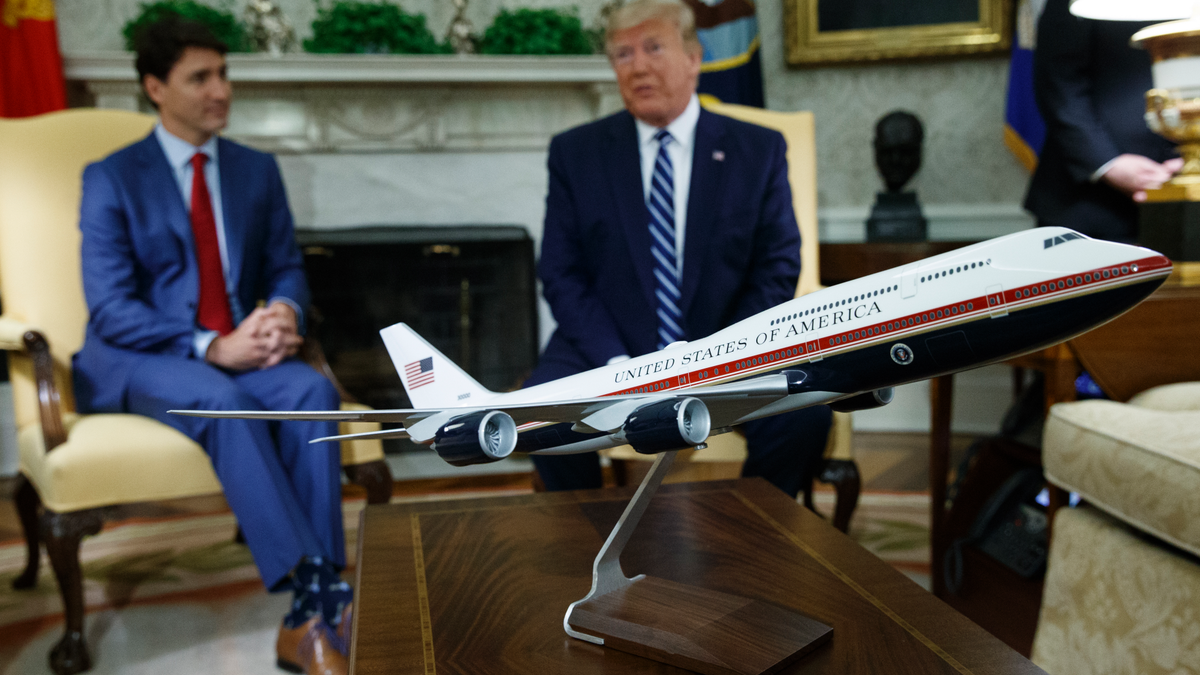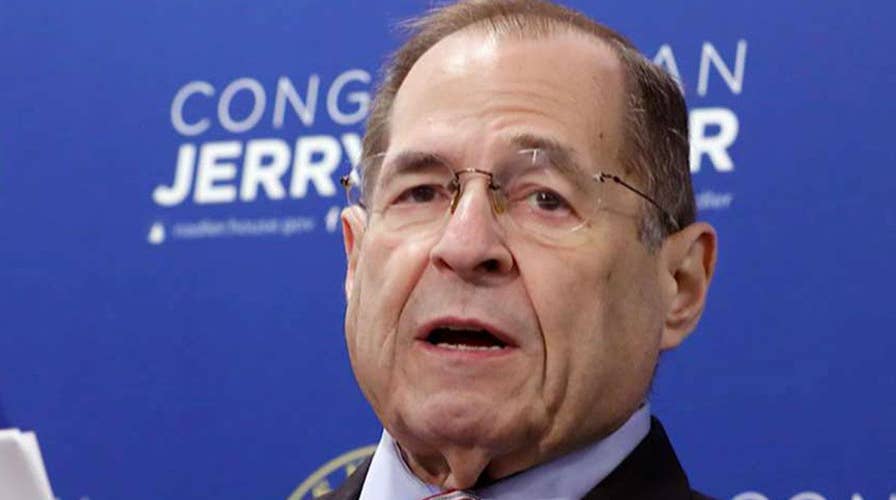Democrats chart path to impeachment as Congress returns from break
Impeachment looms over House fall agenda; Daily Caller editorial director Vince Coglianese and Democratic strategist Zach Friend weigh in.
As Congress heads back to work on Monday in Washington after a six-week recess, lawmakers who already have struggled to pass substantive legislation this term are set to grapple with a slew of combustible issues, ranging from trade deals and border wall funding to gun control and impeachment proceedings.
With an already heated presidential cycle in full swing, experts have said the political landscape would afford little hope for legislative compromise, but plenty of opportunity for gamesmanship and stonewalling. To top it all off, lawmakers also need to fund the government by Oct. 1 to avert another shutdown, despite deep-seated disagreements on appropriate budget levels for the State Department, the Pentagon, and other key agencies.
"It's a really tough environment for lawmaking," Sarah Binder, a political-science professor at George Washington University and senior fellow at the Brookings Institution, told Fox News. "First, the parties are surely more ideologically polarized from each other than they were decades ago. Second, there's more sheer partisanship in town than before-- tit for tat, your team is for it, so my team is against it. Third, close electoral competition narrows the window for dealmaking -- each election offers each party a chance to hold or gain control. ... [And,] because the president is so unpopular nationally and with independents, there's limited pressure on Democrats to resolve problems."
"Parties may have an incentive periodically to show voters that they can govern," Binder added. "But as often they disagree about what the problems are, their base rewards them for inaction, and they are better off blaming the other side for gridlock than negotiating solutions."
YOO: TRUMP CAN REALLOCATE FUNDS TO THE BORDER WALL, AND THE SUPREME COURT WILL BACK HIM
In a video posted to Twitter on Sunday, President Trump seemingly dismissed the need for any bargaining at all on his border wall, which he said was being built already "on an expedited basis."
Last week, Defense Secretary Mark Esper signed off on spending $3.6 billion in Defense Department construction funds for 175 miles of wall on the southern border with Mexico. Lower courts had frozen use of the money while a lawsuit proceeded. Last month, however, the U.S. Supreme Court cleared the way for the use of about $2.5 billion.
"We'll have, by the end of next year, close to 500 miles of wall. We're taking money from all over, because as you know, the Democrats don't want us to build the wall," Trump said. "They're fighting us at every step, but our military has stepped up, and they're doing a fantastic job."
The decision to redirect funding could prompt many Democrats to try reining in future repurposing efforts in the new congressional session. Some courts have suggested that if Congress wanted to stop Trump from repurposing funds for the border wall, it could do so -- with legislation.
But, there's "not a lot of incentive" for House Democrats to "play along" and pass meaningful bills, given that Republicans and the White House would "take credit" for them, Northern Illinois University political science professor Scot Schraufnagel told the CQ Roll Call podcast this week.
"It's a really tough environment for lawmaking."
According to Schraufnagel, Congress has succeeded so far in passing little "substantive" legislation, even as the raw number of bills passed remained loosely comparable to previous congresses.
"If you look at sheer numbers, we're at the summer recess of the Trump second Congress," Schraufnagel said. "And... if you go back and look at sheer productivity, it's ... actually been more productive than the 104th under Clinton, much less than Bush Sr., who had over 382 public laws at this point in his second Congress. Right now, we're at 56 new public laws, much less than Obama's 112th [Congress,] but right around the same as Carter and Bush Jr. in the 108th. A little bit less."
But, Schraufnagel said only 16 of the 56 new public laws passed by Congress this term ranked as significant.
However, despite the gridlock, experts said lawmakers likely would reach a deal to avert another government shutdown this month. The House already has okayed ten of the annual 12 spending bills, but those bills would be dead on arrival in the Senate. The House would have to compromise with the Senate to come to an agreement. In the meantime, Democrats have signaled they will craft a temporary measure to fund the government to avoid a shutdown in less than a month.
"I think the partisan environment often means that at least one party doesn't feel the cost of saying NO to bargaining," Binder told Fox News. "Only when the costs of refusing to negotiate are so steep for BOTH parties are we more likely to see effort. (Think about recent shutdowns-- when GOP finally felt the blame, they caved)."
Compounding the problem, Binder said, were the "cleavages within the parties as well as between, such as the Progressives vs. Pelosi and her swing district members. (And when GOP controlled House, pragmatists vs the Freedom Caucus members.)"

Rep. Alexandria Ocasio-Cortez, D-N.Y., has sparred openly with top Democrats on key issues -- and experts say factions in the party could lead to gridlock. (AP Photo/J. Scott Applewhite, File)
Meanwhile, reports also emerged over the weekend indicating that the House Judiciary Committee was escalating its impeachment investigation into the president and was preparing a vote as soon as next Wednesday to establish procedures for hearings the panel could hold this fall.
House Judiciary Committee Chairman Jerry Nadler, D-N.Y., turned heads by claiming just before the recess began that the committee already had launched an impeachment investigation, only to send conflicting signals about the matter later. This week's possible vote would lend more outward credibility to the idea that Nadler has been serious about putting the president on trial.
But, the move would still amount only to a technical maneuver, and top Democrats have cautioned that impeachment would be premature. House Speaker Nancy Pelosi, D-Calif., said earlier this month that the public generally still hasn't supported impeachment, and many moderate Democrats have balked, saying there's no chance of obtaining a two-thirds vote in the Republican-controlled Senate necessary to convict and remove Trump from office.
"I've been traveling all of August," Rep. Henry Cuellar, D-Texas, said this week. "This is not an issue people bring up. I think a lot of people would rather just vote him out, vote the president out."
And Rep. Tulsi Gabbard, D-Hawaii, said in an interview airing Sunday with Greta Van Susteren's "Full Court Press" that impeachment proceedings would "tear our country apart."
THE LATEST FOX NEWS POLL ON THE 2020 PRESIDENTIAL RACE
A Fox News poll from this past June showed that most Americans didn't think impeachment was in Trump's future and didn't want him impeached and removed from office.
But, an August Fox News poll showed growing public support on another hot-button issue certain to appear on the agenda this congressional session: gun control. Overwhelming and bipartisan majorities of voters have favored background checks on gun buyers and taking guns from people who've posed dangers to themselves or others, the poll found.
Those numbers surged after deadly shootings in Dayton, Ohio; El Paso, Texas; and elsewhere. In early August, amid a national outcry on mass shootings, Pelosi wrote to Trump to demand that he invoke a little-known constitutional power to recall Congress early from its recess to pass gun-control legislation.
The DOJ last week sent a package of legislative proposals on gun violence to the White House, a person familiar with the matter told Fox News. It was not immediately clear what proposals were included in the DOJ package.
BETO O'ROURKE SAYS DEATH PENALTY FOR MASS SHOOTERS IS FUNDAMENTALLY WRONG
A bill passed by the House in February would require background checks on all gun sales, including those between strangers meeting online or at gun shows. Currently, the National Instant Criminal Background Check System (NICS) has been employed for sales involving licensed firearms dealers, constituting the majority of all firearm sales.
On Monday Senate and House Democrats said they'll call for a Senate vote on what they called "the much-needed, House-passed Bipartisan Background Checks Act."
But, some Republicans have refused to take up several gun control bills that passed the House on support from Democrats, saying they would encroach upon the Second Amendment without preventing the vast majority of shootings.
Sen. Roy Blunt, R- Mo., said Sunday on NBC News' "Meet the Press" that "the president needs to step up here and set some guidelines for what he would do. ... I'm afraid what's going happen here is what always happens, is we take this silly, 'if we don't get everything, we won't do anything.'"
Trump has sent conflicting signals on expanding background checks -- and his falling standing in many national polls could be contributing to the problem, observers said.
"Trump's deep unpopularity limits lawmaking in another way," Binder told Fox News. "First, the Democratic base shows little interest in their representatives making deals with Trump that would give him credit and enhance his position for 2020. NAFTA 2.0 is a prime example. Really not clear whether Democrats will get the concessions their base groups demand or the extent to which the Speaker might be dragging her heels. Either way, that trade agreement is moving very slowly. And because the president is so unpopular nationally and with independents, there's limited pressure on Democrats to resolve problems."

President Trump and Canadian Prime Minister Justin Trudeau meeting in the Oval Office this past June, behind a model of the new Air Force One design. (AP Photo/Evan Vucci, File)
And, on the Republican side, Bidner asserted, "a president's signal contribution to lawmaking is often his ability to stake out a path forward, even if less popular, to provide cover for his party to make concessions (gun restrictions are a prime example). [Senate Majority Leader Mitch] McConnell won't bring up a bill unless Trump stakes out a clear position, STICKS to that position, and takes the heat for giving Democrats some of what they want.
"I think that's largely why -- coupled with the partisanship -- Trump has achieved very little of his legislative agenda outside what he got on taxes (that didn't require Democratic votes) and outside issues on which both parties agree," such as opioid-related bills, Binder said.
Among the other proposals being considered: red flag laws, more money for mental health and making sure juvenile information would get into existing background checks. Additionally, White House aides have said Attorney General Bill Barr has been drafting legislation to speed up the death penalty process for mass shooters.
The issue could be contentious among Democrats seeking to unseat President Trump in 2020. Former Texas Rep. Beto O'Rourke has sought to revive his struggling candidacy by calling for a mandatory buyback of what he called "assault weapons" -- but he also has insisted, in a recent policy shift, that capital punishment was categorically wrong.
There has been some precedent for decisive action from the Trump administration on gun control. The White House last year unilaterally banned bump stocks and other gun modifiers that would make semi-automatic firearms fire faster, after the mass shooting in Las Vegas in 2017 left 58 dead and more than 800 injured. The move angered some conservatives, but the Supreme Court rejected a push to delay its implementation earlier this year.
Despite the high-profile nature of some agenda items, the House’s legislative traffic for the upcoming week wouldn't grab the biggest headlines. The House is tentatively scheduled to debate a bill about the Florida coastline, a measure to protect the "Arctic Cultural and Coastal Plain" and legislation dealing with "marine economies." These plans would bar drilling and impose other environmental protections. A memo to Democrats from House Majority Leader Steny Hoyer, D-Md., mentioned guns but offered no timetable for legislation in the House.
CLICK HERE TO GET THE FOX NEWS APP
Democrats are expected to hold a forum Tuesday to try pressuring McConnell to consider gun measures. Political scientists said they were wrestling with a fundamental question.
"Does (an apparent) rise in incivility complicate problem-solving and lawmaking, more so than ideological divides between the two parties?" Binder said. "Or does a rise in incivility merely reflect the increased partisan combustion we see every day on Capitol Hill?"
Fox News' Chad Pergram, Jake Gibson, Dana Blanton and The Associated Press contributed to this report.






















